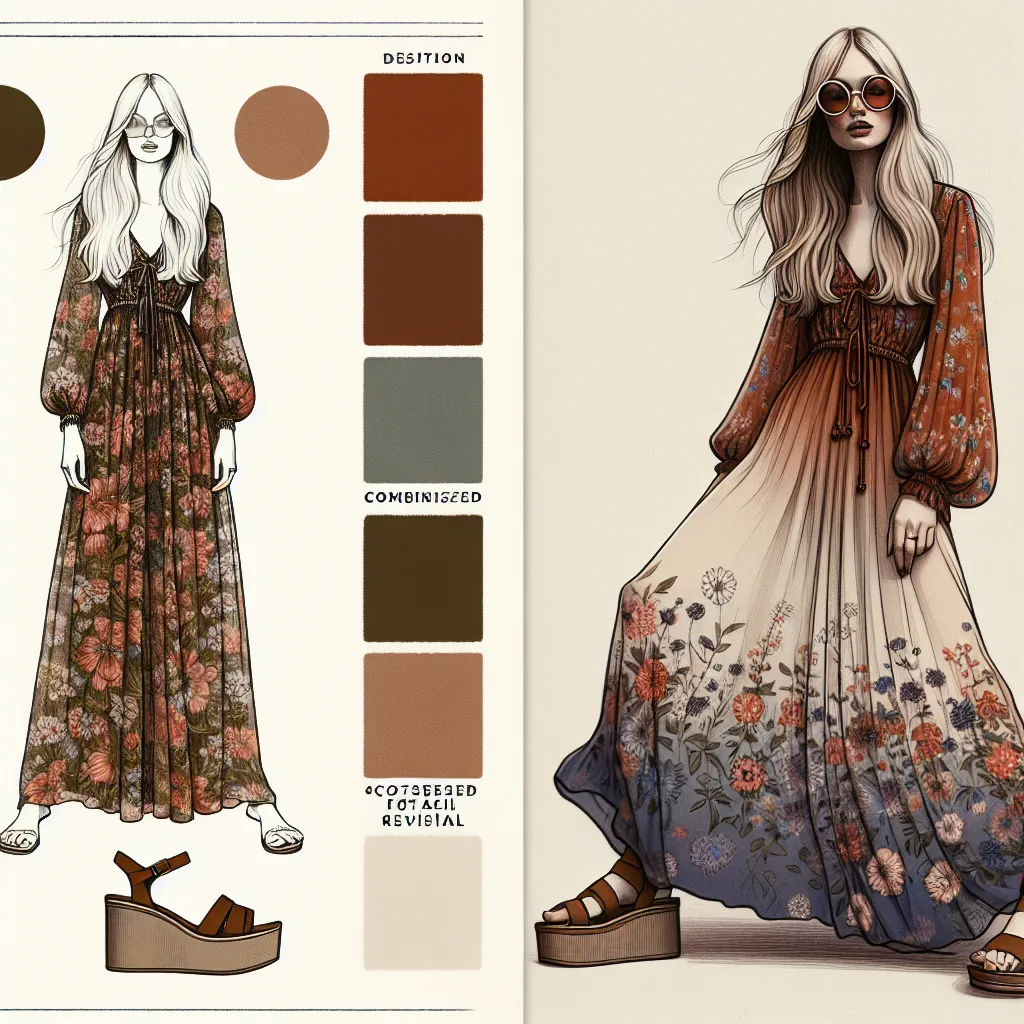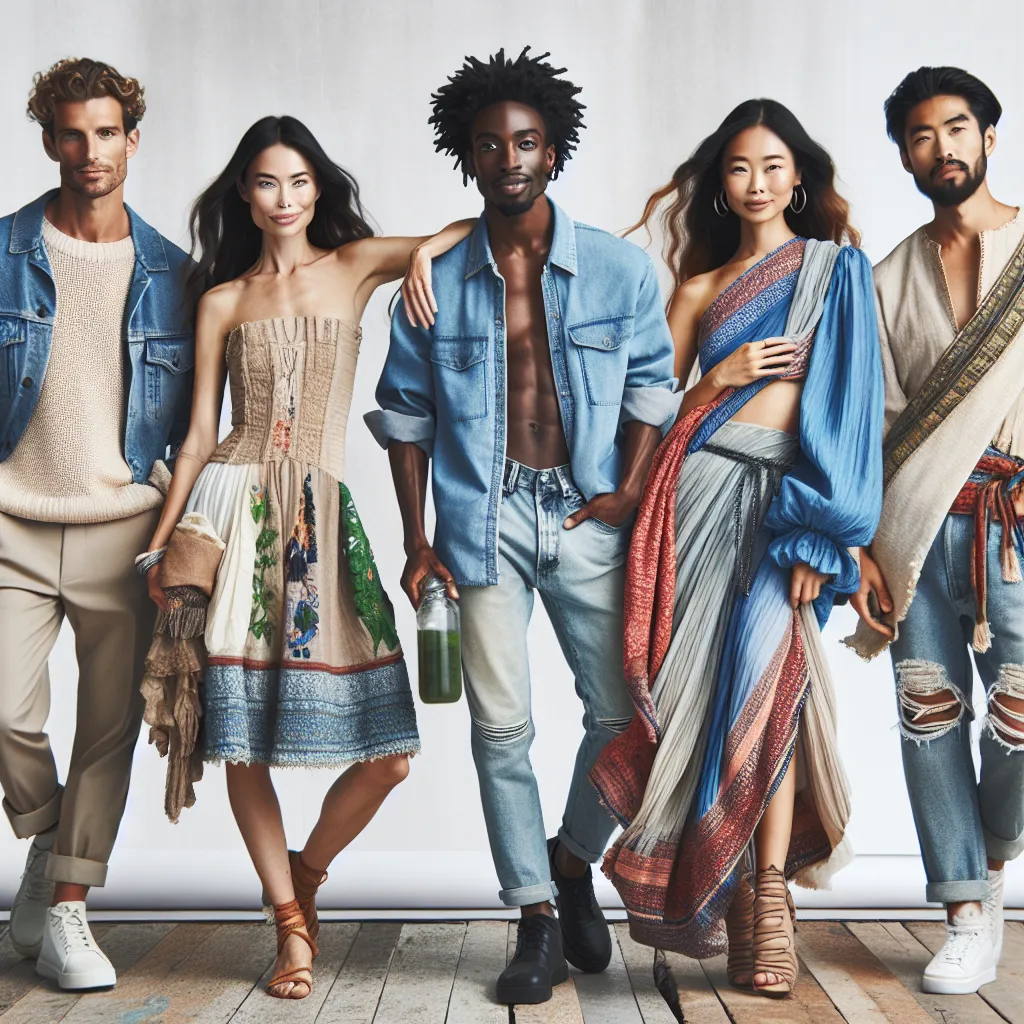The Rise of Sustainable Fashion
With the growing awareness of environmental issues and the impact of fast fashion on the planet, the fashion industry is undergoing a significant shift towards sustainability. The rise of sustainable fashion is a response to the call for more eco-friendly and ethical practices within the industry. Consumers are becoming more conscious of the environmental and social impact of their fashion choices, leading to an increased demand for sustainable and eco-friendly clothing.
Sustainable fashion encompasses various aspects, including using environmentally friendly materials, reducing waste, and ensuring fair labor practices. The shift towards sustainable fashion has led to innovations in material sourcing, such as organic cotton, hemp, bamboo, and recycled fabrics. Furthermore, eco-friendly production processes, such as water and energy conservation, are becoming more prevalent in the industry.
Another key aspect of the rise of sustainable fashion is the emphasis on ethical and transparent supply chains. Consumers are increasingly interested in knowing the origins of their clothing and the conditions in which they were produced. This has led to a push for greater transparency and ethical standards within the fashion industry.
In addition to these changes, sustainable fashion is also influencing consumer behaviors and attitudes. Many consumers are opting for quality over quantity, embracing minimalism, and seeking timeless pieces that are designed to have a longer lifespan. The shift towards a more sustainable and mindful approach to fashion is reshaping the industry and driving positive change.
Overall, the rise of sustainable fashion signifies a growing movement towards a more environmentally conscious and ethical fashion industry. As consumers continue to prioritize sustainability in their purchasing decisions, the demand for eco-friendly and ethical fashion is expected to drive further innovation and positive change within the industry.
Eco-Friendly Materials in the Fashion Industry
In recent years, the fashion industry has come under increasing scrutiny for its environmental impact. As a result, there has been a growing shift towards sustainable and eco-friendly practices in fashion. One crucial aspect of this movement is the use of eco-friendly materials in clothing production.
Traditionally, the fashion industry has relied heavily on materials such as conventional cotton, which requires substantial amounts of water and pesticides to grow. However, sustainable fashion brands are increasingly turning to eco-friendly alternatives such as organic cotton, hemp, and bamboo. These materials are grown using sustainable farming practices and significantly reduce the environmental footprint of clothing production.
Another eco-friendly material gaining traction in the fashion industry is recycled polyester. By transforming plastic waste into high-quality fabric, this innovative material helps to reduce the reliance on virgin resources and minimizes the amount of plastic ending up in landfills and oceans.
Beyond natural and recycled fabrics, there is also a growing interest in innovative materials such as Tencel, made from sustainably sourced wood pulp, and Piñatex, a leather alternative derived from pineapple leaf fibers. These materials not only offer sustainable alternatives to traditional fabrics but also encourage creativity and innovation in fashion design.
In addition to the materials themselves, sustainable fashion also considers the entire lifecycle of a garment, including its biodegradability and recyclability. By embracing eco-friendly materials, the fashion industry has the potential to minimize its environmental impact and pave the way towards a more sustainable and ethical future.
Ethical Practices and Fair Trade in Fashion
Sustainable fashion is not just about using eco-friendly materials and reducing the environmental impact of clothing production. It’s also crucial to consider ethical practices and fair trade in the fashion industry. Ethical practices in fashion encompass fair wages, safe working conditions, and respect for workers’ rights throughout the supply chain. Supporting fair trade in fashion means ensuring that the artisans and workers creating the products are paid fairly for their work and operate in safe environments.
Many fashion brands are now embracing these ethical principles and are transparent about their production processes. They prioritize fair trade partnerships with producers and artisans, ensuring that their workers are treated ethically and compensated fairly. By supporting these brands, consumers can contribute to the promotion of fair trade practices in the fashion industry.
Fair trade in fashion also extends to the sourcing of materials. Embracing eco-friendly trends involves using sustainable and ethically sourced materials such as organic cotton, recycled fabrics, and natural dyes. By choosing garments made from these materials, consumers can support fair trade principles and minimize the environmental impact of their clothing choices.
In conclusion, ethical practices and fair trade are integral aspects of sustainable fashion. By supporting brands that prioritize fair trade partnerships and ethical production processes, consumers can play a significant role in promoting a more responsible and transparent fashion industry.
The Future of Sustainable Fashion
As we look towards the future of sustainable fashion, it’s clear that eco-friendly trends are set to play an increasingly vital role in the industry. The growing understanding of the environmental impact of fast fashion has sparked a global movement towards more sustainable and ethical practices. Consumers are becoming more conscious of their purchasing decisions, demanding transparency and accountability from brands. This shift in consumer behavior has pushed fashion companies to reevaluate their production methods, sourcing of materials, and overall impact on the planet.
One of the key aspects of the future of sustainable fashion is the development and implementation of innovative technologies. From eco-friendly fabric alternatives to advancements in recycling and upcycling processes, the fashion industry is embracing technological solutions to reduce its ecological footprint. For instance, we are witnessing the rise of bio-fabricated materials derived from natural sources such as pineapple leaves, mushroom roots, and orange peels, offering sustainable alternatives to traditional textiles.
Moreover, the future of sustainable fashion lies in embracing circularity. This concept focuses on creating a closed-loop system where materials are recycled and reused, minimizing waste and reducing the need for new resources. Designing durable and timeless pieces, implementing take-back programs, and promoting repair and resale initiatives are all contributing to the shift towards a circular fashion economy.
Collaborations and partnerships across the industry are also driving the future of sustainable fashion. From designers and manufacturers to policymakers and consumers, working together towards common goals is essential for creating a more sustainable and ethical fashion ecosystem. This collaborative approach fosters innovation, creates a platform for knowledge exchange, and ultimately accelerates the transition towards a more eco-conscious industry.
In conclusion, the future of sustainable fashion is centered around technological innovation, circularity, and collaborative efforts. By prioritizing eco-friendly practices and embracing ethical standards, the fashion industry can pave the way for a more sustainable and responsible future.




